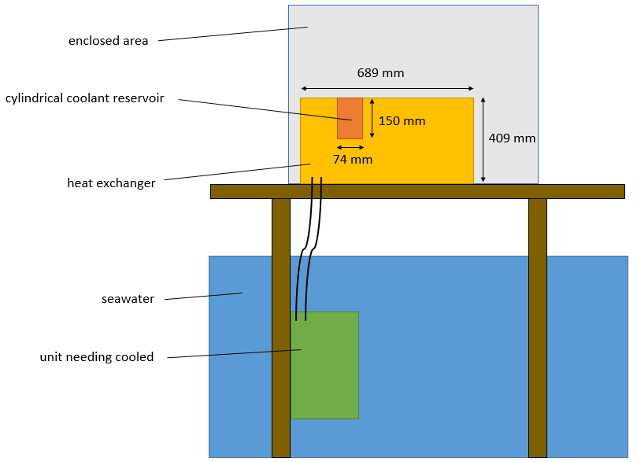NineSigma, representing Thales, is seeking innovative solutions for detecting contaminants, specifically seawater, in closed-loop cooling systems used in off-shore marine applications. The aim is to detect small amounts of seawater i.e. Chloride ions in the coolant, as an early indication of a leak.

The Heat exchanger part of the cooling system is contained within an enclosed environment. The hoses leading to unit requiring cooling are exposed directly to seawater and has a potential leak path, which can contaminate the cooling system. A solution is needed to test for seawater in the coolant system.
Thales is a multinational company that specialises in designing and manufacturing advanced technology solutions for a wide range of industries, including defense, aerospace, transportation, and security.
Certain Thales products are used in remote offshore naval environments and include Closed-loop cooling systems, which typically use a mixture of an ethylene glycol-based heat transfer fluid/corrosion inhibitor and water as a coolant.
The internal volume of coolant fluid in the system is around 10 litres. Under fault conditions, the system can be contaminated with seawater, leading to corrosion and reduced cooling efficiency. In order to identify this, Thales is seeking innovative and cost-effective ways to detect small amounts (500 ppm of Chloride ions) of seawater contamination.
Submissions to this Challenge must be received by Apr 26, 2023.
Source: NineSights
#2023, #Aerospace, #Amp, #Applications, #Aria, #Article, #ChemistryMaterialsScienceNews, #ClassicalPhysicsNews, #Competitions, #Contamination, #Cooling, #Corrosion, #Defense, #Detection, #Efficiency, #Environment, #Fluids, #Full, #FundamentalPhysicsNews, #How, #Images, #Link, #Links, #Loop, #Manufacturing, #Marine, #Max, #MaxWidth, #News, #Ppm, #Remote, #Security, #Technology, #Text, #Thales, #Themes, #Transfer, #Transportation, #Water
Published on The Digital Insider at https://bit.ly/3zsv6Y5.
Comments
Post a Comment
Comments are moderated.